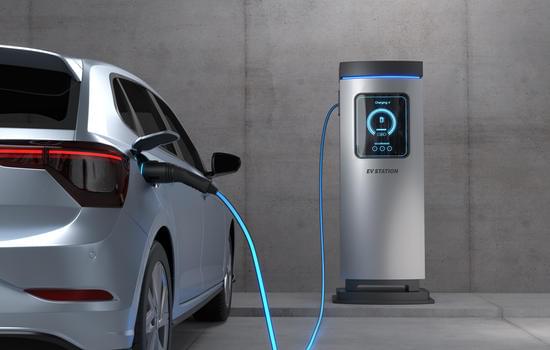How to Choose the Right EV Charger for Your Home

Electric vehicles (EVs) are revolutionizing the way we think about transportation, and owning an EV comes with many benefits such as lower emissions, reduced fuel costs, and a quieter driving experience. However, one crucial aspect of EV ownership is charging your vehicle at home. With various EV chargers available, selecting the right one for your home can be daunting. This guide will help you understand the key factors to consider, ensuring you make an informed decision that suits your needs.
Why Home Charging Matters
Charging your EV at home provides unparalleled convenience and cost savings. Unlike relying solely on public charging stations, a home charger allows you to plug in overnight, ensuring your vehicle is ready to go every morning. Additionally, home charging can reduce energy costs, especially if paired with time-of-use electricity rates or renewable energy sources like solar panels.
Types of EV Chargers
Level 1 Chargers
- Description: Standard charging using a 120-volt outlet.
- Charging Speed: Adds 2-5 miles of range per hour.
- Best For: Light EV users or those with short daily commutes.
- Pros: No additional equipment required; cost-effective.
- Cons: Slow charging speeds; unsuitable for larger EVs with extended ranges.
Level 2 Chargers
- Description: Uses a 240-volt outlet and provides significantly faster charging.
- Charging Speed: Adds 10-60 miles of range per hour, depending on the charger.
- Best For: Most EV owners; ideal for overnight charging.
- Pros: Faster and more efficient than Level 1; compatible with most EVs.
- Cons: Requires professional installation and higher upfront costs.
DC Fast Chargers (Level 3)
- Description: High-speed chargers are typically found in public stations.
- Charging Speed: Adds 100-200 miles of range in 30 minutes.
- Best For: Occasional use for long-distance travel.
- Pros: Extremely fast charging times.
- Cons: Expensive; not practical for home use due to high power requirements.
Key Factors to Consider When Choosing a Home EV Charger
1. Charging Speed
- Determine how quickly you need your EV to charge.
- For daily commutes, a Level 2 charger is often sufficient.
- Larger battery capacities may require faster chargers.
2. Compatibility with Your Vehicle
- Ensure the charger supports your EV’s make and model.
- Some EVs, like Tesla, come with proprietary connectors but include adapters for other chargers.
3. Electrical Capacity of Your Home
- Check if your home’s electrical system can handle the additional load.
- You may need to upgrade your electrical panel for a Level 2 charger.
4. Smart Features
- Look for chargers with Wi-Fi connectivity, scheduling, and app control.
- Smart chargers can optimize charging based on electricity rates.
5. Installation Costs
- Factor in the cost of hiring a licensed electrician.
- Additional costs may include wiring upgrades or permits.
6. Portability
- Some chargers are portable and can be used at multiple locations.
- Consider portability if you frequently travel or move homes.
7. Weather Resistance
- If installed outdoors, ensure the charger is weatherproof and durable.
- Look for chargers with an IP rating of at least IP54.
Step-by-Step Guide to Choosing the Right Charger
Step 1: Assess Your Driving Needs
- Calculate your daily mileage and charging requirements.
- Consider your EV’s battery size and how often you need to charge.
Step 2: Evaluate Your Home’s Electrical System
- Consult an electrician to check your home’s wiring and capacity.
- Plan for potential upgrades to accommodate higher power chargers.
Step 3: Compare Charger Brands and Models
- Research reputable brands such as ChargePoint, JuiceBox, and Tesla Wall Connector.
- Compare features, warranties, and customer reviews.
Step 4: Decide on Smart vs. Basic Chargers
- Determine if advanced features like app control are essential for you.
- Basic chargers are cheaper but lack customization options.
Step 5: Get a Professional Installation
- Hire a licensed electrician for safe and compliant installation.
- Obtain necessary permits to ensure adherence to local regulations.
Cost Breakdown of Home EV Chargers
- Level 1 Charger: Typically free with your EV.
- Level 2 Charger: $500-$1,500 for the unit; $500-$2,000 for installation.
- Electrical Upgrades: $1,000-$3,000, depending on complexity.
Benefits of Home EV Charging
1. Convenience
- Charge at your own schedule without relying on public stations.
- Avoid waiting in queues at busy charging hubs.
2. Cost Savings
- Lower electricity rates compared to public charging fees.
- Potential for further savings with solar integration.
3. Increased Property Value
- Homes with installed EV chargers are attractive to potential buyers.
- Future-proofs your home as EV adoption grows.
4. Environmental Impact
- Reduces your carbon footprint by enabling renewable energy usage.
- Promotes sustainable transportation practices.
Popular Home EV Charger Brands
- ChargePoint Home Flex
- Adjustable amperage for flexible installation.
- Compatible with most EVs.
- JuiceBox Pro 40
- Wi-Fi-enabled with smart charging features.
- Compact and durable design.
- Tesla Wall Connector
- Tailored for Tesla vehicles but compatible with others using adapters.
- Sleek design and high power output.
- Siemens VersiCharge
- User-friendly interface and affordable pricing.
- Indoor and outdoor installation options.
- Grizzl-E Classic
- Rugged and weather-resistant.
- Reliable performance at an affordable cost.
Conclusion
Choosing the right EV charger for your home is a critical step in maximizing the benefits of electric vehicle ownership. By understanding your driving habits, evaluating your home’s electrical capacity, and considering features like charging speed and smart capabilities, you can make an informed decision. A well-chosen home charger not only enhances your EV experience but also contributes to a sustainable future. Take the time to research and invest in a charger that meets your needs, ensuring a seamless and efficient charging experience for years to come.
